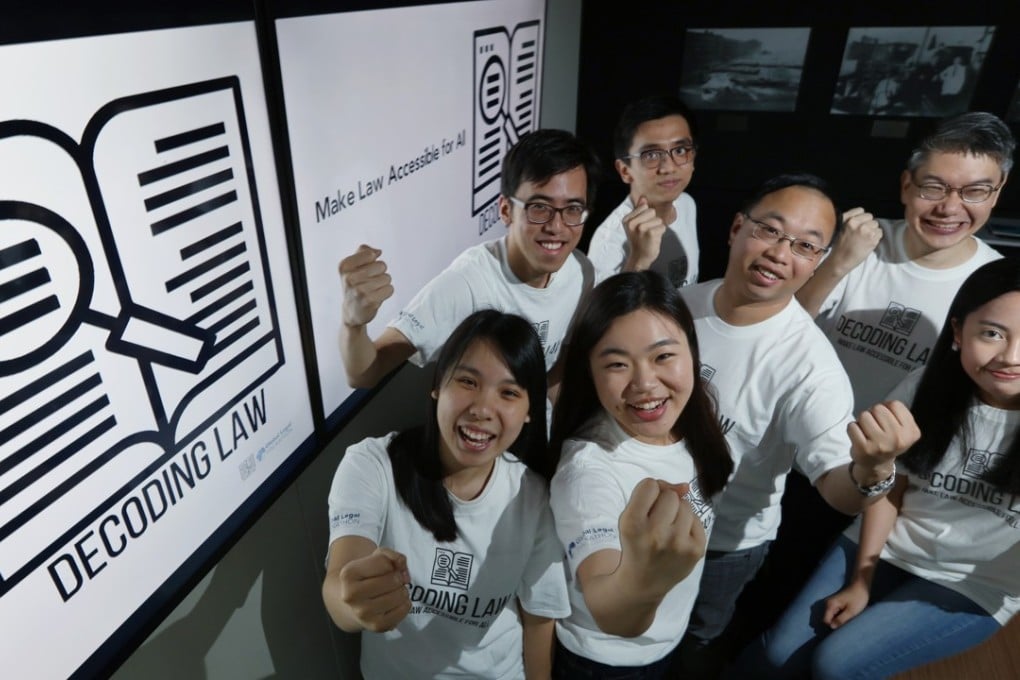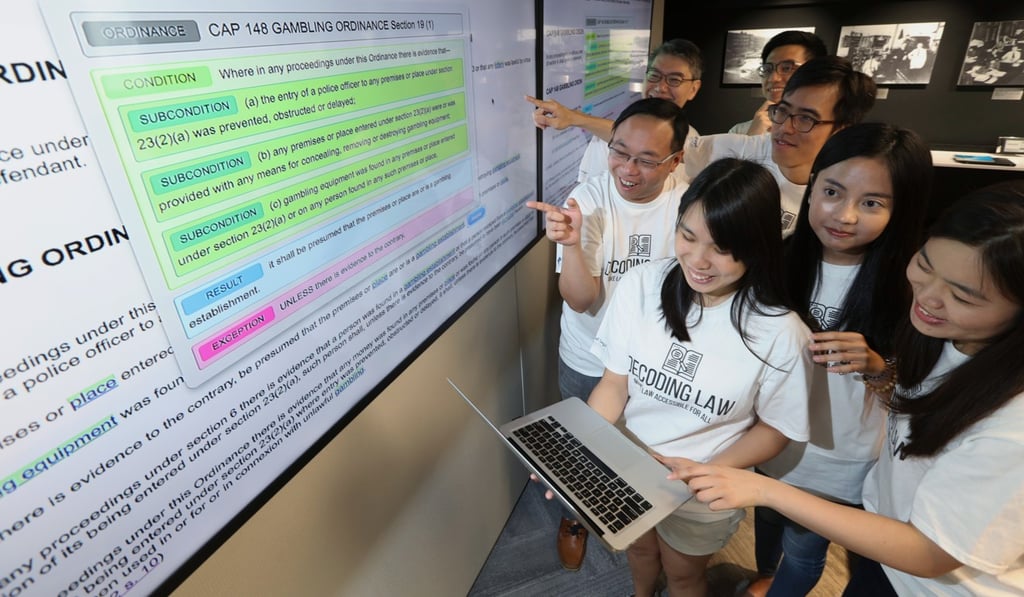Hong Kong students develop web browser chatbot that helps you decode complex legislation
Local team wins grand prize at global hackathon held in New York for computer program aided by machine-learning technology

Reading legislation can sometimes be difficult without a legal education and training, but a pioneering team of students from two Hong Kong universities is quickly changing that and has garnered global acclaim in the process.
Five students from Chinese University and the University of Hong Kong have developed a computer program to help anyone involved in a legal dispute navigate the challenges of interpreting the law. In the process, the team last month won the grand prize in New York in an event billed as the first Global Legal Hackathon. The finals drew 14 teams, with earlier rounds drawing 40 teams of competitors from 22 countries and 40 cities.
With the help of machine-learning technology, the five students teamed with four developers and created “Decoding Law” by building a browser plug-in that puts legislation into simpler terms for online users. Specific clauses can be located while “chatting” with a chatbot.
The computer program helps with ponderous passages such as this one from the Sale of Goods Ordinance, one of the oldest laws in the city with some clauses predating 1900: “Where the seller sells goods in the course of a business, there is an implied condition that the goods supplied under the contract are of merchantable quality, except that there is no such condition.”

In the program, a primary condition of the legislation is set forth, and in this example, a condition – such as “of merchantable quality” – is isolated before going into its exceptions. The plug-in also lists out where the definition of phrases, such as “companies”, could change in meaning depending on the clause.